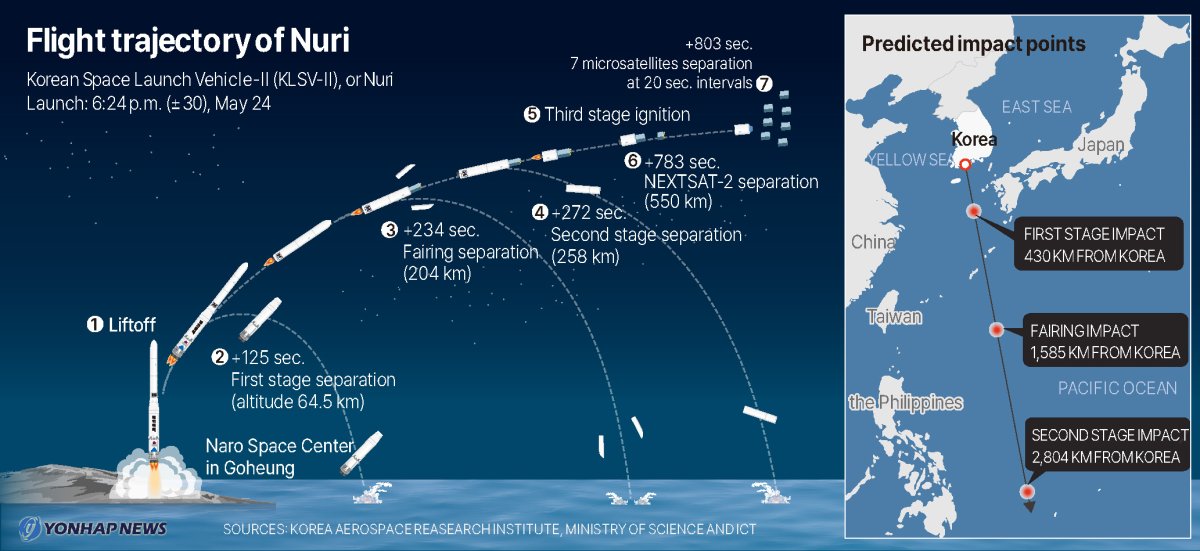27.05.2023

South Korea's homegrown space rocket Nuri blasts off from Naro Space Center in Goheung, South Jeolla Province, on May 25, 2023. (Yonhap)
SEOUL, -- South Korea on Thursday successfully launched its homegrown space rocket Nuri to put eight practical satellites into orbit, achieving another milestone for the country's space program.
The 200-ton Nuri, also known as KSLV-II, blasted off from Naro Space Center in the country's southern coastal village of Goheung at 6:24 p.m., and successfully completed its flight sequence, according to the Ministry of Science and ICT and the Korea Aerospace Research Institute (KARI).
"Following the success of the second launch of Nuri last year and the third launch today, we have confirmed the flight performance of Nuri, not only confirming the reliability of Nuri, but also confirming our potential for launch services for various satellite operations and space exploration," Science Minister Lee Jong-ho said in a briefing.
He also said that the main satellite, NEXTSAT-2, has made its first communication with Korea's King Sejong Station in Antarctica.
But he said it needs more time to verify whether one of the seven microsatellites onboard Nuri was deployed normally from the rocket.
Nuri's first stage rocket separated 123 seconds after launch at an altitude of 66 km, followed by its fairing and second stage rocket separations at altitudes of 209 km and 263 km, respectively.
The main payload satellite was deployed 783 seconds, or 13 minutes, after the launch.
The successful launch demonstrated South Korea's capability to operate a space vehicle to carry payload satellites into a target orbit.

South Korea's homegrown space rocket Nuri blasts off from the Naro Space Center in Goheung, South Jeolla Province, on May 25, 2023. (Yonhap)
South Korea had planned to launch the three-stage rocket Wednesday, but a computer glitch in the helium tank forced the country to postpone the liftoff for one day.
n a meeting of Nuri's launch management committee earlier in the day, the science ministry and KARI decided to go ahead with the launch after solving the problem overnight.
In 2022, Nuri sent a dummy satellite into its target orbit as planned, making South Korea the seventh country in the world to have developed a space launch vehicle that can carry a more than 1-ton satellite, after Russia, the United States, France, China, Japan and India.
South Korea has secured the key independent technology for developing and launching space rockets carrying homegrown satellites, opening up a new era in the country's space program.
The 2 trillion-won (US$1.52 billion) Nuri project that began in 2010 will continue until 2027, with three additional rocket launches.
[Video] S. Korea successfully launches its homegrown space rocket Nuri
Youtube

